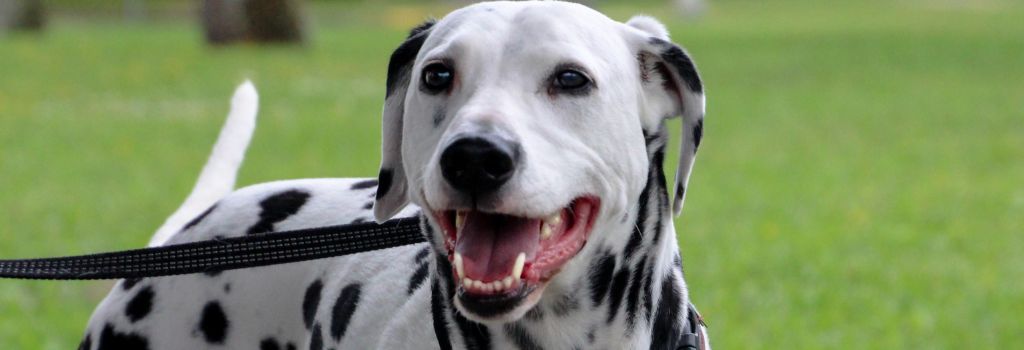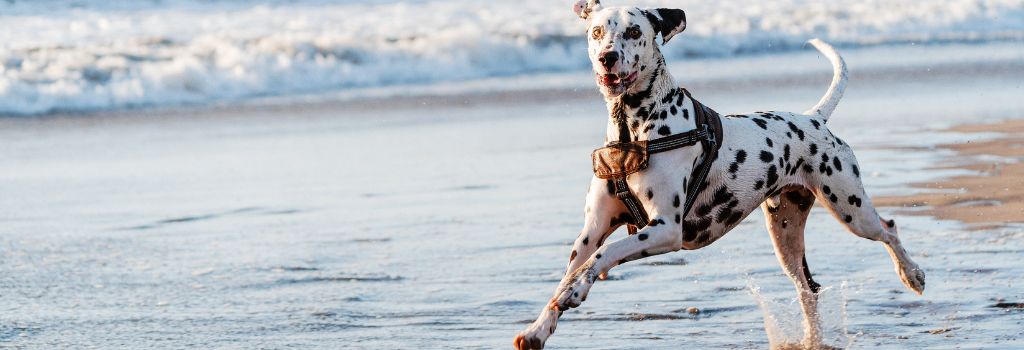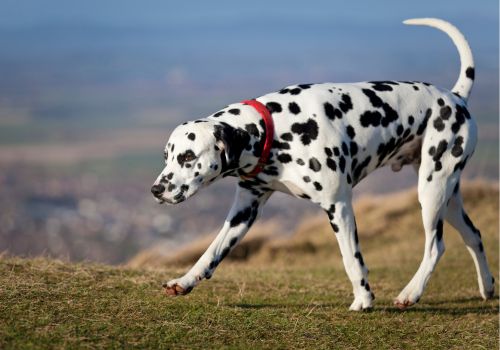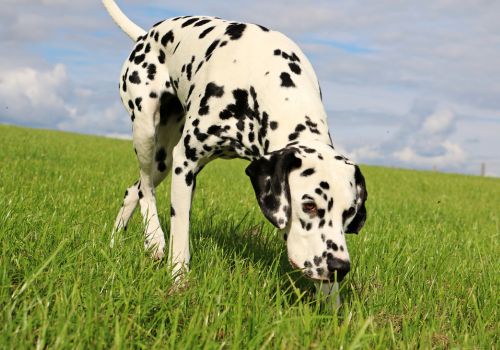Are you in the market for a dog that's as lively and fun as you are? Do you want a loyal friend who's protective but also sociable? If you answered "yes," then the Dalmatian could be the breed you're looking for.
Why Choose a Dalmatian?
Dalmatians, or "Dals," are not just a pretty face with striking spots. These dogs are highly energetic and playful, making them great companions for active families or individuals. They're not just playful; they're smart too. Dals are intelligent and trainable, and they love mental challenges almost as much as they love a good game of fetch.
Are you a social butterfly? Your Dal will fit right in! With their gregarious and extroverted personalities, Dalmatians are generally people-oriented and eager to please. They are loyal companions who are protective of their families, making them good watchdogs.
A Few Considerations
However, owning a Dalmatian comes with its own set of challenges. For starters, these dogs require a lot of exercise to channel their boundless energy. They can also become rowdy, particularly when they're young.
Separation anxiety can be an issue, making Dals best suited for people who can spend a good amount of time with them. They also need proper socialization from an early age to prevent them from becoming aggressive or fearful. Be prepared for a dog that has a strong instinct to roam and may be territorial with larger dogs, especially those of the same sex.

A Bit of Dalmatian History
Dalmatians have a unique place in canine history as the only spotted breed. Their work history is diverse, including a natural affinity for horses that made them excellent coaching dogs for centuries. Their speed and endurance were treasured attributes, as was their protective nature. The Disney movie One Hundred and One Dalmatians may have catapulted the breed into popular fame, but Dalmatians have long been cherished for their unique spots and lovable personalities.
Life with a Dalmatian
With an average lifespan of 12-14 years, a Dalmatian can be a long-term member of your family, sharing in all your adventures and adding a splash of spots to your life! If you have one of these beauties, you'll be rewarded with a fun-loving and sensitive dog who will be your loyal companion.

Genetic Predispositions for Dalmatians
The Eyes Have It
Ever look into your Dalmatian's eyes and wonder what they're thinking? Keeping those eyes healthy is crucial. They can suffer from various eye problems, including glaucoma and cataracts, which can severely impact their quality of life. Your vet will keep an eye out for these during regular check-ups. Glaucoma, in particular, is a serious medical emergency, and if you notice symptoms like squinting or redness, get to a clinic ASAP. Cataracts can develop as they age, but dogs often adjust well to this condition.
Lids, Lashes, and Oddities
Entropion and Dermoids are two more eye issues your spotty friend might face. The former causes eyelashes to irritate the cornea, making it extremely painful, while the latter is usually harmless skin growth on the eye. The good news? Early surgical intervention is generally successful.
Liver Alert
While your Dalmatian's liver is working hard to process all the fun, sometimes it can struggle with a disorder known as Copper Hepatopathy. Regular liver tests are advised to spot any early signs, like jaundice, and save your dog's life.
The Itch They Can't Scratch
Allergies can make your Dalmatian more itchy than twitchy. Known as "atopy," this condition usually affects their belly, paws, and ears. The good news is there are plenty of treatment options to keep your doggo comfortable.

Stones in the Road
Hyperuricosuria, a genetic condition, can cause uric acid to build up in the urine and lead to bladder or even kidney stones. DNA tests can help identify if this could be a problem for your pup. Always look out for symptoms like blood in the urine or difficulty urinating.
Heart Matters
Dilated cardiomyopathy (DCM) is a severe heart condition that Dalmatians are prone to. This disease enlarges and weakens the heart, causing it to pump blood inefficiently. Yearly ECG or echocardiograms are essential to diagnose this early.
The Leggy Issues
Rapid growth can result in a condition called osteochondritis dissecans (OCD) affecting your dog's joints. Monitoring your Dalmatian puppy's weight and diet can help prevent this issue.
Can't Catch a Breath?
Larangeal Paralysis is something to look out for in older Dalmatians. Keep an ear out for noisy breathing or signs of distress, especially in hot, humid conditions.
Shaky Ground
Epilepsy is not uncommon in Dalmatians. If you notice your dog having a seizure, remember to remain calm and keep them from getting hurt. Medication usually helps control the condition effectively.

Growing Pains
Young Dalmatians can experience bone pain from a condition called eosinophilic panosteitis. If you notice a change in their gait or sudden discomfort, your vet can diagnose and treat this with pain medication.
Skin-Deep Troubles
From mange to more complex skin conditions like sebaceous adenitis and Dalmatian Bronzing Syndrome (or "Dal Crud"), your Dalmatian's skin might need as much attention as their coat. Regular vet checks and special shampoos can be quite beneficial.
Hear, Hear!
Deafness can be a genetic issue in Dalmatians. If your usually responsive buddy starts ignoring you, it might be time for a more thorough hearing check.
Tooth Fairytale or Nightmare?
Dental abnormalities like misaligned teeth or malocclusion are also things to watch out for. Yes, even dogs can get braces to straighten things out!
If you have questions and you'd like to reach out to us, you can call us directly at (567) 361-3407, or you can email us at [email protected]. Don't forget to follow us on social media Facebook, Instagram.

